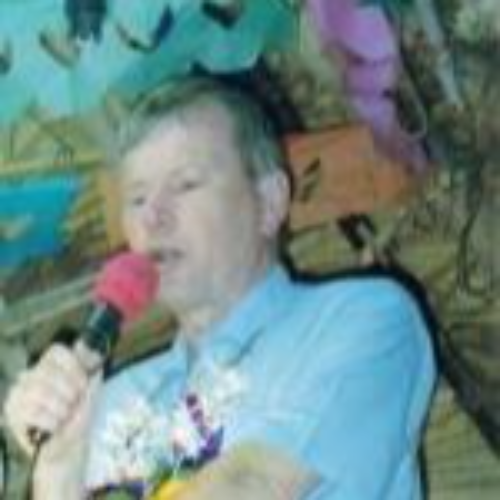-
26th Sunday After Pentecost. November 22nd, 2026. Series
Contributed by Christopher Holdsworth on Nov 28, 2025 (message contributor)
Summary: Year A, Proper 29.
Ezekiel 34:11-16, Ezekiel 34:20-24, Psalm 100:1-5, Psalm 95:1-7, Ephesians 1:15-23, Matthew 25:31-46
A). THE DAVIDIC SHEPHERD.
Ezekiel 34:11-16, Ezekiel 34:20-24.
1. The Good Shepherd (Ezekiel 34:11-16).
First, we see the Good Shepherd as the one who seeks out the lost sheep, Ezekiel 34:11. ‘If a man has a hundred sheep and one of them goes astray,’ teaches Jesus, ‘does he not go to the mountains to seek the one who is straying?’ (cf. Matthew 18:12). Thus does Jesus with us.
Second, He delivers them from their enemies, Ezekiel 34:12. The price Jesus paid for our deliverance was death, but in His death He overcame death, that last of all our enemies, on our behalf. He is the good shepherd, who gives His life for the sheep.
Third, He gathers them from the nations, and feeds them on the mountains of Israel, Ezekiel 34:13-14. This reaches far beyond the physical restoration of the land to Israel, to an inheritance for all God’s people. Even now He is gathering a people to Himself out of every tribe, kindred, tongue, and nation. ‘Hear the word of the LORD, O nations, and declare it to the isles afar off,’ says Jeremiah; ‘He who scattered Israel will gather him, and keep him as a shepherd does his flock’ (cf. Jeremiah 31:10).
Fourth, he gives them rest, Ezekiel 34:15. He makes them to lie down in green pastures. God’s people find true repose in His presence, and in the yoke of Christ, and even physical death represents nothing more than a rest from our labours!
Fifth, He binds that which was broken and heals the sick, Ezekiel 34:16a. John the Baptist sent disciples to Jesus to ask, ‘Are You the Coming One, or do we look for another?’ To which Jesus replied, ‘Go and tell John the things which you hear and see: the blind see and the lame walk; the lepers are cleansed and the deaf hear; the dead are raised up and the poor have the gospel preached to them’ (cf. Matthew 11:3-5).
Sixth, conversely, the Good Shepherd exercises judgment and pronounces destruction against “the fat and the strong” (Ezekiel 34:16b). These represent people of rank and privilege WITHIN the visible flock of Christ who turn out to be not sheep at all, but ‘rams and he-goats’ (cf. Ezekiel 34:17-19).
2. I Will Save My Flock (Ezekiel 34:20-22).
The Good Shepherd picks up the theme of judgment again in Ezekiel 34:20.
The indictment is that the ‘fat and the strong’ (cf. Ezekiel 34:16b) have been effectively bullying the more vulnerable sheep, “till you have scattered them abroad” (Ezekiel 34:21). When Jesus saw the multitudes, He was moved with compassion because they were ‘scattered abroad, as sheep having no shepherd’ (cf. Matthew 9:36).
Therefore the Lord GOD is determined to save His flock, and to separate the sheep from the goats (Ezekiel 34:22).
3. The Davidic Prince (Ezekiel 34:23-24).
So far the LORD has appeared as the Good Shepherd. Now He delegates that role to “one shepherd” - “my servant David” (Ezekiel 34:23). In other words, the LORD would raise up Messiah from the house and lineage of David, even as He had promised (cf. 2 Samuel 7:16). This "David" shall “feed" His flock, and "He shall be their shepherd."
That Davidic “prince among them” (Ezekiel 34:24), that Messiah, is Jesus.
B). MAKE A JOYFUL NOISE.
Psalm 100.
PSALM 100:1a. This “Psalm of praise” is known in some liturgical circles as ‘Jubilate,’ after the first word of the Latin version. The English translation of the original Hebrew is “Make a joyful noise.”
(Similarly, Psalm 95:1-2 twice calls upon us to “make a joyful noise”: ‘to the Rock of our salvation’ [God/Jesus], and ‘unto Him with psalms.’)
PSALM 100:1b. This is an imperative, calling us to exuberant worship of the LORD. It is addressed to “all the earth.”
(Psalm 98:4 addresses the same call, to ‘Make a joyful noise unto the LORD’ to “all the earth”: ‘make a loud noise, and rejoice, and sing praise.’)
(Psalm 92:1 encourages us that, ‘It is a good thing to give thanks unto the LORD,’ and to sing praises to His name.)
(By Psalm 150:3-6, the whole orchestra is engaged in this service. There is nothing dull about the worship of God!)
PSALM 100:2. The type of service enjoined here clearly includes what we call ‘worship.’ As we “come before His presence,” it includes singing. All of our service should be “with gladness,” but perhaps especially our ‘worship.’
PSALM 100:3. Worship is based in knowledge. Hence the word “Know” at the beginning of this verse. Jesus said to the Samaritan woman, ‘You (all) worship what you (all) do not know; we know what we worship, for salvation is of the Jews’ (John 4:22).
So why do we worship? It is because “the LORD, He is God.” “He made us” - both in Creation, but also in Covenant: “we are His people, and the sheep of His pasture.”

 Sermon Central
Sermon Central



